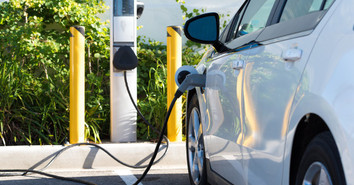The shift to electric and hybrid vehicles is undeniable, and the automotive industry is working hard to keep up. However, a sometimes overlooked aspect of this evolution is the role of lubricants.
While traditional vehicles rely heavily on motor oils for internal combustion engines, electric and hybrid models have unique requirements. Here’s how the lubricant industry is adapting to electric and hybrid vehicles.
Addressing EV-Specific Cooling Needs
Electric vehicles generate a significant amount of heat in the batteries and electric motors. Unlike internal combustion engines, these components demand specialized cooling solutions.
Traditional automotive lubricants focus on temperature regulation in engines, but EVs require fluids that combine cooling and lubrication properties. Manufacturers design advanced formulations to enhance heat dissipation efficiency, which reduces the risk of overheating in electric drivetrains and batteries.
The lubricant industry is actively developing thermal management fluids to support EVs. Manufacturers design these fluids to circulate efficiently around sensitive components, ensuring longevity and reliability. Without suitable cooling solutions, the performance of electric and hybrid vehicles can falter under high loads.
Reducing Friction for Efficiency Gains
Efficient operation is key for both hybrids and fully electric vehicles. High-performing lubricants play a critical role in reducing friction between moving parts in gearboxes, bearings, and axles.
This decreased friction improves vehicle efficiency, which extends both battery life and overall mileage. Unlike traditional motor oils, EV-specific lubricants focus on reducing wear and tear in quieter, specialized mechanisms.
The materials used in EV components often differ from those in internal combustion engines, meaning they require different additive packages. Keeping up with this shift requires constant innovation, ensuring that lubricants optimize every function for smooth operation.
Extending the Life of Electric Components
High-quality lubricants are crucial for safeguarding sensitive parts in electric and hybrid vehicles. The electric drivetrains, which include motors, inverters, and transmissions, demand protection against wear, corrosion, and electrical conductivity issues. Without tailored lubrication, these essential components can degrade quickly, leading to costly repairs or replacements.
Manufacturers formulate advanced lubrication systems to provide a protective barrier while also minimizing electrical interference. Long-term lubrication not only supports vehicle performance but also substantially reduces maintenance needs for vehicle owners.
Handling Higher Torque in EV Transmissions
Electric and hybrid vehicles often operate with higher torque levels than their traditional counterparts. This increased torque puts unique stress on transmission systems, making lubrication critical. Innovative transmission fluids are being created to withstand high loads while improving energy efficiency.
Lubricants designed for EV and hybrid transmissions also help distribute power more effectively, leading to smoother gear shifts and better driving experiences. Balancing high torque and smooth performance is no small task, but evolving lubricant technologies are successfully meeting the challenge.
Supporting Sustainability Goals
The focus on sustainability in electric and hybrid vehicles extends to the lubricants used. Manufacturers are introducing eco-friendly formulations that align with the goal of reducing environmental impact. These new products prioritize biodegradable ingredients and energy-saving properties.
These innovations support more sustainable automotive solutions while maintaining exceptional performance. For hybrid vehicles especially, balancing the needs of both internal combustion engines and electric components has led to groundbreaking advancements in green lubricants.
The lubricant industry is increasingly adapting to hybrid and electric vehicle advancements. Whether it’s improving efficiency, enhancing thermal management, or reducing environmental impact, automotive lubricants are evolving rapidly for a new generation of vehicles.

